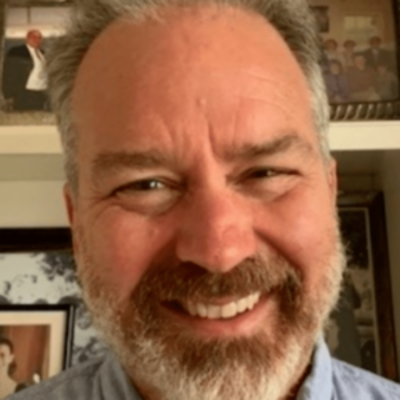Clare Beresford, CEO at Laurence Simons catches up with Brian to discuss all things career, pandemic, and diversity related.
Clare Beresford (CB): Good morning Brian. Thank you for taking the time to chat to me today. Please can you tell us a bit more about yourself?
Brian Daly (BD): I am from the United States. Though my Irish parents convinced their children that we were all truly Irish, my Irish cousins saw through that sham and made it clear to us that we were not the least bit Irish. (They were right of course).
I am lucky to have been living in – and exploring - London for the past 8 years. I will never be admitted to the club of Londoners, I suspect, but life in London has been a great gift.
CB: Please can you tell me about the moment you decided to become a lawyer and your pathway into law?
BD: If I had been a better student of biology and chemistry, I probably would have tried to have been a paediatrician. Alas – I did not have that ability. Reading came easily to me though. My parents did not have the opportunity to go to school beyond the age of 13 or 14, and as a result were flummoxed by the jargon-dense papers they were sometimes asked to sign. They passed those papers on to me to decipher. To this day, my 84-year-old mother delights in having me “do her paperwork” - which means I go through her junk mail. She loves it whenever we intercept a letter that has even the whiff of a fraudulent offer.
CB: When were you most challenged as a lawyer and how did you overcome it?
BD: Most challenged? I am a “general lawyer” – and not a specialist in any one area of the law. At first, I felt I had to develop an impossible level of expertise on every legal issue that could possibly surface. I annoyed so many in that struggle only to realise that I had to learn just enough to be able to ask reasonable questions to smart people. So perhaps, the challenge is to focus enough to be able to ask the right clarifying questions. I am still working on that skill.
CB: What are you most proud of in your career to date?
BD: A person I work with once told me, “We trust you.” I smiled all the way home that night, in fact, I am smiling now at the mere memory of that. I so very much want to earn that compliment. Still.
CB: What specific hurdles did you face (or are facing) in the pandemic, and how did you overcome them? As a company and personally.
BD: The people I work with and care about have all been touched – no, more than touched, they have been bruised by the pandemic. Some were very ill for a time; all were worried about the health of the ones they love. In a very true way, we all went through periods of exhaustion. I read an article that describes the feeling of languishing – a feeling of weariness and general dissatisfaction despite being physically healthy. As a team, we confided to one another that feeling this way was threating to take root. It dissipates a bit when we acknowledge it - and when we tell each that it is OK to feel this way. The trick is how to best to banish it as we move into the heart of 2021.
CB: Diversity and inclusion is very important to Laurence Simons, I am an active member of the 30% Club, and we consistently ask our clients about their D&I policies as part of our due diligence. Can you please tell us, what does diversity, equity and inclusion mean to you, and why is it important?
BD: I do not see how you can call yourself a lawyer or a compliance officer if you do not believe in justice – in fairness. Justice and fairness are “the root of the root and the bud of the bud” of diversity, equity, and inclusion, (to misquote e.e. Cummings).
One of the many things that makes MSD a special place is that the company acknowledges – and celebrates - that lawyers and compliance professionals have a duty to serve our communities beyond the company. That is actively and sincerely encouraged.
CB: How would you advocate for diversity and inclusion with colleagues who do not understand its importance?
BD: Discrimination, and the need to combat discrimination, is universal. Discrimination is a wrong that respects no borders. The injustice of not giving someone a chance – of treating them as somehow lesser – is something that we need to actively address wherever we live and work. The people I work alongside do not need to be convinced of that. The same is true for inclusion. The importance of providing equal access to opportunities and resources for people who might otherwise be excluded is something that is especially important in a multinational company.
I am so glad we are a multinational team. I find that when we have discussions on the topic of diversity and inclusion it helps if we listen and provide a space to talk openly about what discrimination and inclusion means to us as individuals, and as members of different communities. With that as a foundation, we can then tackle what we can and must do together and immediately to strengthen our diversity and inclusion efforts, immediately.
CB: And finally, outside of material gains, including achieving professional goals, what gives you the greatest joy?
BD: My three grown children- they make my heart dance in my chest.
CB: Thank you Brian for your honesty and insightful answers. It has been a pleasure talking with you today.


